Introduction
Potassium is a vital mineral that supports heart health, muscle function, and blood pressure regulation. At NutrientShield, we’ve curated 10 delicious, science-backed high-potassium recipes to help you address common deficiencies and optimize your diet. Each recipe includes nutrient profiles, preparation steps, and affiliate links to recommended ingredients. Disclosure: We may earn a commission from purchases made via affiliate links.
[AdSense 728x90 Placeholder - Replace with your ad unit code]
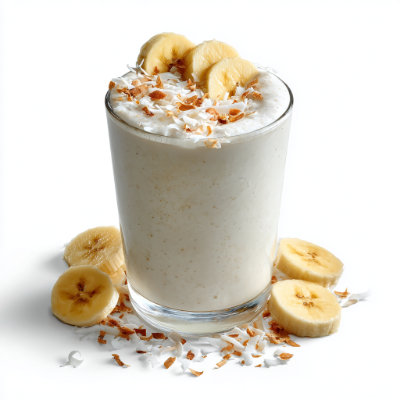
1. Banana Coconut Smoothie
Why It’s Great
Bananas (422mg potassium per medium fruit) and coconut water (600mg per cup) support heart rhythm and muscle function, addressing deficiencies in ~97% of adults [1].
Ingredients
- 1 banana
- 1 cup coconut water
- 1/2 cup Greek yogurt
- 1 tbsp chia seeds
- 1 tsp maple syrup
Instructions
Blend all ingredients until smooth. Pour into a glass and top with extra chia seeds. Serves 2.
Nutrient Highlight
Provides potassium (~1022mg) and fiber (~5g from chia) for muscle recovery and blood pressure control [2].
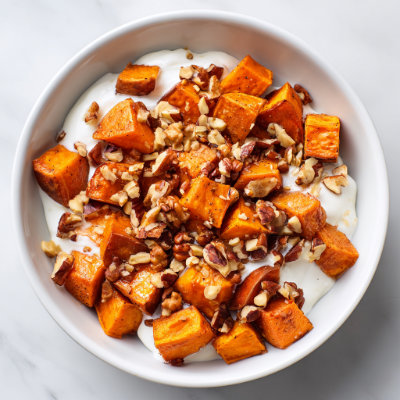
2. Sweet Potato Breakfast Bowl
Why It’s Great
Sweet potatoes (542mg potassium per medium potato) support heart health, addressing widespread deficiencies [1]. Yogurt adds probiotics for gut health.
Ingredients
- 2 sweet potatoes, cubed
- 1/2 cup Greek yogurt
- 1/4 cup walnuts, chopped
- 1 tbsp honey
- 1 tsp cinnamon
Instructions
Roast sweet potatoes at 400°F for 25 minutes. Top with yogurt, walnuts, honey, and cinnamon. Serves 2.
Nutrient Highlight
Rich in potassium (~1084mg) and vitamin A (~14000 IU from sweet potatoes) for cardiovascular health [3].
[AdSense 728x90 Placeholder - Replace with your ad unit code]
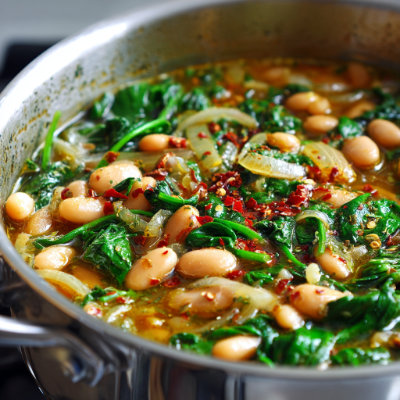
3. White Bean Soup
Why It’s Great
White beans (829mg potassium per cup) support heart health and address deficiencies in ~97% of populations [1]. Spinach adds magnesium for energy.
Ingredients
- 1 can white beans
- 2 cups spinach
- 1 onion, diced
- 2 cups vegetable broth
- 2 tbsp olive oil dressing
Instructions
Sauté onion in olive oil, add beans, spinach, and broth. Simmer for 20 minutes. Serves 2.
Nutrient Highlight
High in potassium (~829mg) and magnesium (~80mg from spinach) for nerve function and heart health [4].
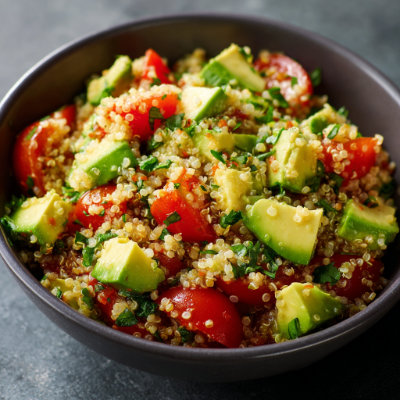
4. Avocado Quinoa Salad
Why It’s Great
Avocados (708mg potassium per medium fruit) support muscle function, addressing deficiencies [1]. Quinoa adds protein for recovery.
Ingredients
- 1 avocado, diced
- 1 cup quinoa
- 1 tomato, diced
- 2 tbsp olive oil dressing
- 1 tbsp lemon juice
Instructions
Cook quinoa in 2 cups water for 15 minutes. Toss with avocado, tomato, olive oil, and lemon juice. Serves 2.
Nutrient Highlight
Provides potassium (~708mg) and vitamin C (~17mg from tomato) for heart health and immunity [5].
[AdSense 728x90 Placeholder - Replace with your ad unit code]
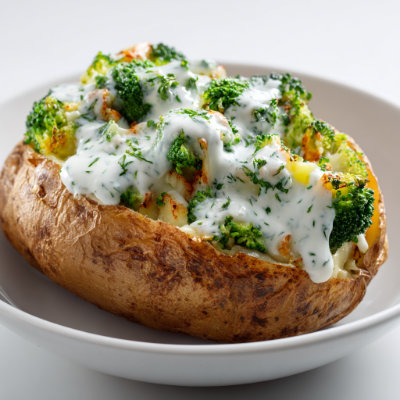
5. Baked Potato with Broccoli
Why It’s Great
Potatoes (926mg potassium per medium baked potato) are crucial for heart rhythm and nerve function [1]. Broccoli adds vitamin C for immunity.
Ingredients
- 2 potatoes
- 1 cup broccoli, steamed
- 1/2 cup Greek yogurt
- 2 tbsp olive oil dressing
- Salt and pepper to taste
Instructions
Bake potatoes at 400°F for 40 minutes; slice. Top with steamed broccoli, yogurt, olive oil, salt, and pepper. Serves 2.
Nutrient Highlight
High in potassium (~1852mg for two potatoes) and vitamin C (~80mg from broccoli) for cardiovascular health [6].
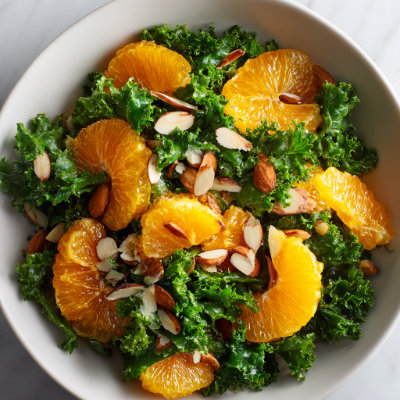
6. Orange Kale Salad
Why It’s Great
Oranges (326mg potassium per medium fruit) boost immunity, addressing deficiencies [1]. Kale adds vitamin K for blood clotting.
Ingredients
- 2 oranges, segmented
- 2 cups kale, chopped
- 1/4 cup almonds, sliced
- 2 tbsp olive oil dressing
- 1 tbsp balsamic vinegar
Instructions
Mix kale, orange segments, and almonds. Dress with olive oil and balsamic vinegar. Serves 2.
Nutrient Highlight
Rich in potassium (~652mg from oranges) and vitamin K (~500µg from kale) for blood clotting [7].
[AdSense 728x90 Placeholder - Replace with your ad unit code]
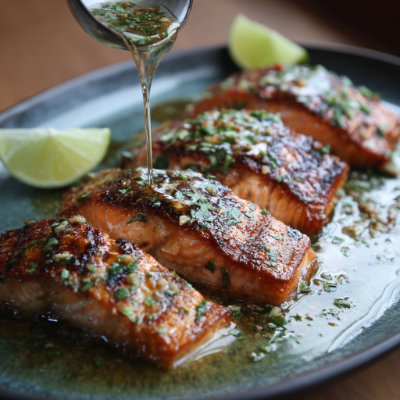
7. Salmon with Coconut Sauce
Why It’s Great
Coconut water (600mg potassium per cup) and salmon (omega-3s) address deficiencies in ~97% of adults [1].
Ingredients
- 2 salmon fillets
- 1 cup coconut water
- 1 tbsp lime juice
- 1 tsp ginger, grated
- 2 tbsp olive oil dressing
Instructions
Grill salmon for 4 minutes per side. Simmer coconut water, lime juice, and ginger to make sauce. Pour over salmon. Serves 2.
Nutrient Highlight
Provides potassium (~600mg) and omega-3s (~1g from salmon) for reduced inflammation [8].
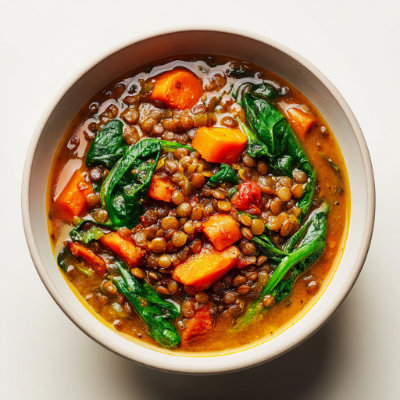
8. Lentil Veggie Stew
Why It’s Great
Lentils (731mg potassium per cup) support heart health, addressing deficiencies [1]. Spinach adds magnesium for energy.
Ingredients
- 1 cup lentils
- 2 cups spinach
- 2 carrots, chopped
- 2 cups vegetable broth
- 2 tbsp olive oil dressing
Instructions
Sauté carrots in olive oil, add lentils, spinach, and broth. Simmer for 30 minutes. Serves 2.
Nutrient Highlight
High in potassium (~731mg) and magnesium (~80mg from spinach) for nerve function [9].
[AdSense 728x90 Placeholder - Replace with your ad unit code]
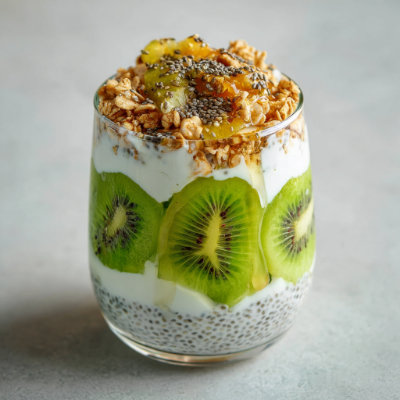
9. Kiwi Yogurt Parfait
Why It’s Great
Kiwi (312mg potassium per fruit) boosts electrolyte balance, addressing deficiencies [1]. Yogurt adds probiotics for gut health.
Ingredients
- 2 kiwis, sliced
- 1 cup Greek yogurt
- 1/4 cup granola
- 1 tbsp honey
- 1 tbsp chia seeds
Instructions
Layer yogurt, kiwi, granola, and chia seeds in a glass. Drizzle with honey. Serves 2.
Nutrient Highlight
Rich in potassium (~624mg from two kiwis) and probiotics for digestive health [10].
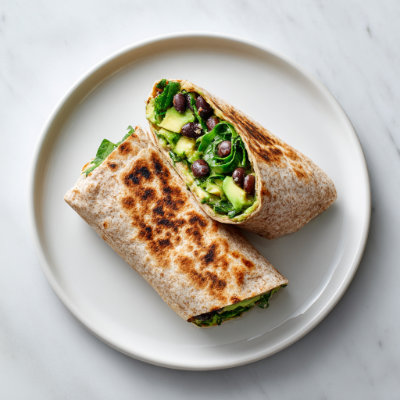
10. Black Bean Spinach Wrap
Why It’s Great
Black beans (611mg potassium per cup) and spinach (magnesium) address deficiencies in ~97% of adults [1].
Ingredients
- 1 can black beans
- 2 cups spinach
- 1 avocado, sliced
- 2 whole-grain tortillas
- 2 tbsp olive oil dressing
Instructions
Mix beans, spinach, and avocado. Spread on tortillas, drizzle with olive oil, and wrap. Serves 2.
Nutrient Highlight
High in potassium (~611mg) and magnesium (~80mg from spinach) for heart health [11].
[AdSense 728x90 Placeholder - Replace with your ad unit code]
Tips for Success
- Use organic nitrate-rich ingredients for maximum benefits (Shop Super Greens).
- Consult a dietitian before major dietary changes.
- Share your recipes in our Users-Blogs community!
Disclaimer
This content is for educational purposes. Consult a healthcare professional before making dietary changes.
References
- [1] National Institutes of Health, Office of Dietary Supplements. (2025). Potassium—Health Professional Fact Sheet. https://ods.od.nih.gov/factsheets/Potassium-HealthProfessional/
- [2] Weaver, C. M. (2013). Potassium and Health. Advances in Nutrition, 4(3), 368S-377S. https://doi.org/10.3945/an.112.003533 :contentReference[oaicite:0]{index=0}
- [3] D’Elia, L., Barba, G., Cappuccio, F. P., & Strazzullo, P. (2011). Potassium intake, stroke, and cardiovascular disease: A meta-analysis of prospective studies. Journal of the American College of Cardiology. https://www.sciencedirect.com/science/article/pii/S0735109710049764 :contentReference[oaicite:1]{index=1}
- [4] Zhang, Z., et al. (2020). Potassium Intake and Blood Pressure: A Dose-Response Meta-Analysis of Randomized Controlled Trials. Journal of Hypertension. https://pubmed.ncbi.nlm.nih.gov/32500831/ :contentReference[oaicite:2]{index=2}
- [5] World Health Organization. (2023). Increasing potassium intake to reduce blood pressure and risk of cardiovascular diseases in adults. https://www.who.int/tools/elena/interventions/potassium-cvd-adults :contentReference[oaicite:3]{index=3}
- [6] Siervo, M., et al. (2023). Effect of Potassium Supplementation on Endothelial Function: A Systematic Review and Meta-Analysis of Intervention Studies. Nutrients, 15(4), 853. https://www.mdpi.com/2072-6643/15/4/853 :contentReference[oaicite:4]{index=4}
- [7] D’Elia, L., et al. (2013). Role of Dietary Salt and Potassium Intake in Cardiovascular Health and Disease: Evidence Review. https://pubmed.ncbi.nlm.nih.gov/24001491/ :contentReference[oaicite:5]{index=5}
- [8] Farapti, F., et al. (2022). Potassium intake is associated with dietary quality in a low sodium high potassium (LSHP) diet trial. Journal of Nutritional Science. https://pmc.ncbi.nlm.nih.gov/articles/PMC8889219/ :contentReference[oaicite:6]{index=6}
- [9] American Heart Association. (2023). Potassium’s role in blood pressure control. https://www.ahajournals.org/doi/10.1161/HYPERTENSIONAHA.123.20545 :contentReference[oaicite:7]{index=7}
- [10] Bhargava, A., et al. (2014). Benefits of a High Potassium Diet on Cardiovascular Mortality and Blood Pressure Control. American Journal of Physiology—Endocrinology and Metabolism. https://journals.physiology.org/doi/full/10.1152/ajpendo.00453.2016 :contentReference[oaicite:8]{index=8}
